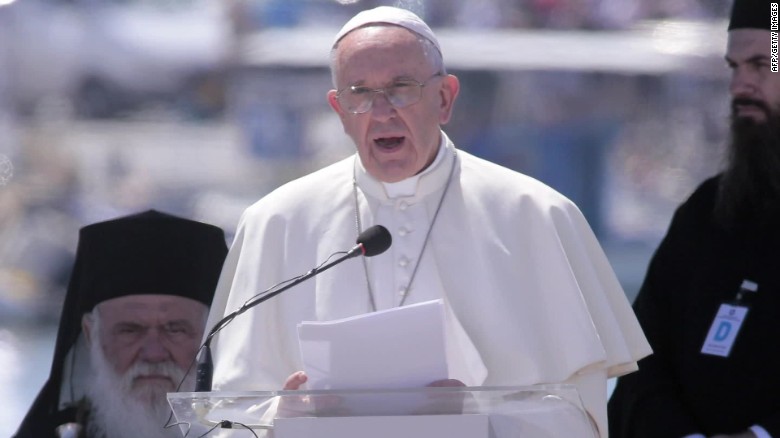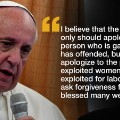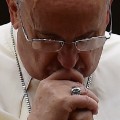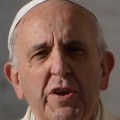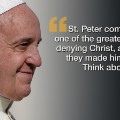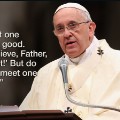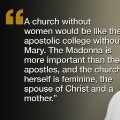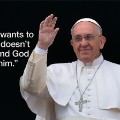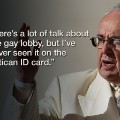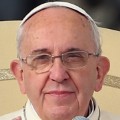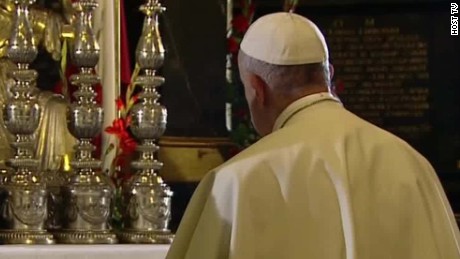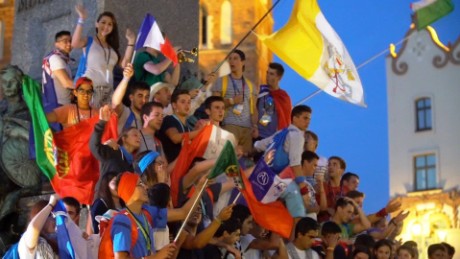Story highlights
- Pope Francis created the commission "after intense prayer and mature reflection," the Vatican says
- Women, particularly in the U.S., have been asking the Catholic Church to address the issue
(CNN)Pope Francis has created a commission to study the historical role of female deacons in the Catholic Church, the Vatican's press office said Monday.
The commission was first promised by the Pope after a meeting with a group of nuns on May 12. He said the Vatican should study the question of ordaining women as deacons, answering a call that women, particularly in the United States, have been asking the church to address for decades.
"Pope Francis expressed his intention to establish an official commission that could study the question" of the diaconate of women, "especially with regard to the first ages of the Church," the Vatican's statement said.
"After intense prayer and mature reflection, Pope Francis has decided to institute the Commission for the Study of the Diaconate of Women."
Deacons can perform many of the same functions as priests, including preach, celebrate marriages, lead funeral services and run parishes. They cannot hear confessions or consecrate the Eucharist, and only married or celibate men over age 35 are eligible for the diaconate. There are about 18,000 deacons in the United States, according to the U.S. Conference of Catholic Bishops.
In the Bible, St. Paul mentions least one woman, Phoebe, who served the early church, possibly as a deaconess. But it's not clear how her role compares to modern deacons, a question the new commission will likely consider. The debate is controversial because it could open the door for women into the Catholic Church's all-male clergy.
This is the third church commission appointed to study the historical role of women deacons since 1992. Both commissions took several years to complete their work and neither led to changes in the church. The more recent report, released in 2002, said the question of ordaining women as deacons was a matter of discernment for church leaders, though few in the Vatican have shown a willingness to push forward.
Pope Francis himself seemed to cast doubt on whether his new commission could make major changes, either, telling journalists that he was surprised by media reports in May that suggested otherwise,
"They said: 'The Church opens the door to deaconesses.' Really? I am a bit angry because this is not telling the truth of things," Francis said in June.
Despite his popularity, the Pope has disappointed many American women by shutting down debates on women's ordination and warning them not to "fall into the trap of feminism."
To date, Francis has praised the "feminine genius" but has not carried through on vague promises to appoint more women to leadership positions.
"Francis' theological imagination makes it impossible for women to achieve equal decision-making power and sacramental authority in this church," wrote Jamie L. Manson, an editor at National Catholic Reporter. "And it's time we faced it."
An American on new commission
Pope Francis has appointed Jesuit Archbishop Luis Francisco Ladaria Ferrer president of the new commission, is composed of six women and six men from academic institutions around the world.
One of the appointees, Professor Phyllis Zagano of Hofstra University, is an American who has written in favor of female deacons.
Last year, she penned a piece for the Harvard Divinity Bulletin called "Ordain Catholic Women as Deacons."
"(H)istory documents women ordained to the diaconate from the earliest centuries of Christianity to the Middle Ages, when the diaconate faded as a separate order," Zagano wrote.
"As priests absorbed the work of deacons, ordination to the diaconate became simply a step in the cursus honorum on the way to priesthood. Fewer and fewer women -- mostly monastic abbesses -- were ordained as deacons, primarily for service within their own convents."
The Women's Ordination Conference issued a statement that month saying "until women are included in all decision-making structures and as priests and bishops of the church, equality remains painfully denied."
